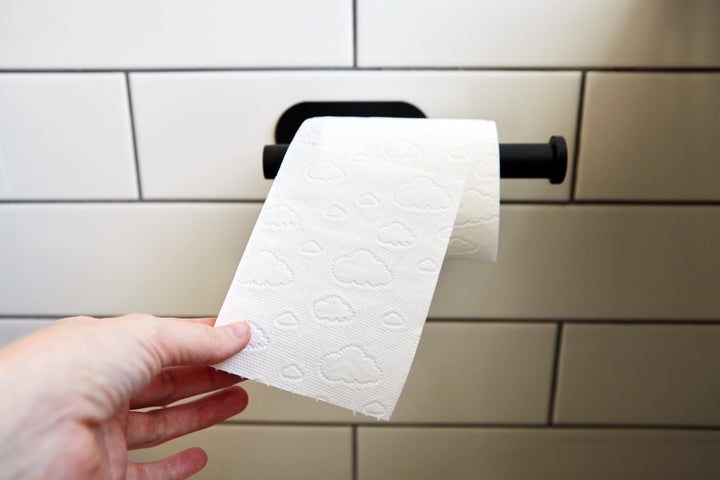🔴 Website 👉 https://u-s-news.com/
Telegram 👉 https://t.me/usnewscom_channel
With dozens and dozens of options for seemingly everything, shopping decisions don’t feel easy nowadays. Even straightforward products like toilet paper (with options such as bamboo, recycled, nontoxic, fragrance, two-ply and more) have a dizzying number of variations out there.
But does the kind of toilet paper you buy actually matter? Or is it all marketing?
Below, doctors and an environmentalist share their thoughts on the most common toilet papers on the market — bamboo, recycled and regular — and what’s best for your health and the environment.
Overall, rough toilet paper of any sort can cause health problems.
Whether buying regular toilet paper, bamboo toilet paper or recycled toilet paper, it is important to consider how soft the toilet paper is, said Dr. Caitlin Homberger Green, a gastroenterologist at the Medical University of South Carolina.
“That has more to do with the perianal skin being a sensitive area,” she noted.
“If you’re using a really rough toilet paper and you’re kind of scrubbing, that can aggravate hemorrhoids, it could aggravate an anal fissure, which is a little tear in that anal mucosa,” she said.
Using soft toilet paper is good for comfort and for health, Green added.
It’s worth noting that there are soft toilet paper options whether you buy regular toilet paper, recycled or bamboo.
Toilet paper (and wipes) with fragrance, chlorine, bleach and dyes can be irritating.
Some toilet papers contain additives like fragrance, chlorine, bleach and dyes, and that isn’t doing any favors for your bottom.
“Synthetic fragrances can cause irritation, especially in people that are prone to allergy,” said Dr. Cuckoo Choudhary, a gastroenterologist at Jefferson Health in Philadelphia.
Specifically, toilet paper with fragrance can lead to dermatitis of the sensitive perianal skin, Green said.
“We do often see patients who have intense itching in the perianal area and that can be from products that they’re using, whether it’s a soap or potentially a wipe or even a toilet paper, and so I do recommend avoiding fragrances in toilet paper,” Green said.
Other chemicals in toilet paper can be bothersome, too. Green recommends that people opt for chlorine-free, unbleached and undyed toilet paper because they, too, can be irritants.
Beyond that, the byproducts in these single-use papers can harm the earth, Green noted.
Environmentally, the benefits of recycled toilet paper and bamboo toilet paper are clear.
You probably think a lot about the single-use plastics in your rotation, along with certain single-use papers — printer paper, paper towels — but toilet paper, likely, doesn’t come front of mind. It should.
“Toilet paper is the ultimate disposable product, and it’s also something in all of our homes, yet many consumers aren’t aware of its true environmental cost,” said Ashley Jordan, the corporate campaign advocate at the Natural Resources Defense Council.
“Popular brands like Charmin and Quilted Northern rely almost entirely on forest fiber, which in turn drives harmful consequences for the climate, biodiversity and the communities that depend on these forests,” Jordan said.
“The largest indicator of the sustainability of a tissue product is the type of fiber used to create it,” Jordan said. As mentioned above, in the case of the “regular” toilet paper brands, it’s generally forest fiber.
The best toilet paper options for the environment are those made from recycled content, Jordan said. These have “just one-third of the carbon emissions and uses half as much water compared to producing these products from forest fiber,” Jordan noted.
Toilet papers that use bamboo are less sustainable than those that use recycled content, but are still a more sustainable option than the regular toilet paper out there, she said.
“Bamboo sustainability can vary depending on how it’s grown. Generally, we urge consumers to opt for bamboo products that carry the Forest Stewardship Council logo. Essentially, FSC certification indicates that the fiber was grown and sourced in a way that limits negative forest impacts, including avoiding the conversion of natural forest into bamboo plantations, which is deforestation,” Jordan explained.
Cutting down forests to get fibers for regular toilet paper harms our health and our environment. “Forests are essential to so much of our world in terms of our climate and biodiversity benefits and public health benefits,” Jordan said.
Research shows that trees help remove pollution from the air. Both bamboo toilet paper and recycled toilet paper don’t use new trees to create the product, which is a plus. “What limits pollution and deforestation is also linked to better human health,” Green said.
Since there’s less waste in landfills from these products, it also reduces the
“amount of harmful pollutants that could come out of that and affect water and soil quality. Therefore, as a physician, I think that that is important because it benefits our community’s health,” Choudhary added.
Ekaterina Demidova via Getty Images
Bamboo toilet paper, generally, has fewer chemicals, which is better for your health.
While bamboo toilet paper is, generally, more expensive than the run-of-the-mill toilet paper out there, it does have definitive environmental and health benefits.
“In general, if you choose a bamboo toilet paper, you’re much less likely to have extensive chemical processing, and these are a lot less likely to have BPA [and] PFAs,” Green said.
While there are health concerns related to the BPA and PFA chemicals, Green noted that she doesn’t “know that they’re direct or causal, but I think that there’s enough of a concern there that I would want to have a precautionary approach, minimize exposure to those when possible.”
Since bamboo toilet paper generally contains fewer chemicals and additives, it can also be beneficial for certain groups, Choudhary said.
“Using the bamboo toilet paper might be advantageous for people with sensitive skin or in those that are prone to repeat urinary tract infection or frequent vaginal infection or vaginal irritation,” Choudhary noted.
Recycled toilet paper is also an environmentally friendly option, as mentioned above, but is a little more iffy on the health side of things.
“With the recycled toilet paper, there is a little bit of a higher risk, it seems like, for chemicals and the processing that they do,” Green said. That said, since brands that make recycled toilet paper aren’t cutting down trees to create the product, there are wholistic environmental public health benefits still, she noted.
Toilet paper aside, a bidet is a great choice.
Both Choudhary and Green said bidets are an ideal choice. Not only are they environmentally friendly since they reduce the amount of toilet paper needed, but they also have definitive health benefits.
Bidets can also be ideal for people post-pregnancy, Choudhary noted, since it’s a gentler option than wiping with toilet paper.
Beyond that, the water quite literally cleans the bottom. “It really ensures complete cleanliness,” Choudhary said.
All in all, there is lots to consider when purchasing toilet paper, but steering clear of bath tissue that has fragrance and chemicals added is good not only for your health, but for the planet’s health, too — and what’s good for the earth is good for you.

